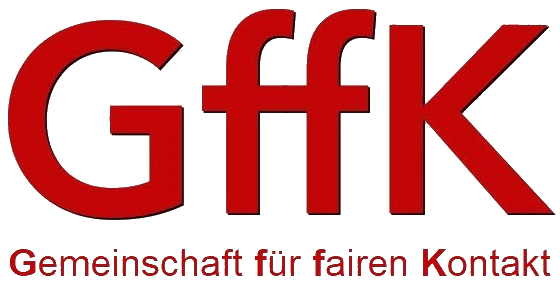FAQs
Here you will find answers to the most frequently asked questions about GffK eG.
Questions about cooperatives:
- What is a cooperative?
A cooperative is a democratic form of society. In a cooperative, the members join together voluntarily. Here the economic promotion of the members should be achieved through joint business operations on their own without the help of third parties.
- Why cooperative (eG) as a form of company
The cooperative is the only legal form that has to fulfill a specific purpose by law. Section 1 of the Cooperative Society Act requires “to promote the acquisition or economy of its members or their social or cultural interests through joint business operations”. The eG (registered cooperative) is the most insolvency-safe legal form in Germany (source: Federal Statistical Office).
- Organs of the cooperative
The board of directors runs the cooperative on its own responsibility. The supervisory board monitors the activities of the board of directors. The general assembly is the supreme decision-making body of the cooperative. It elects the board of directors. The supervisory board appoints the members of the management board and determines their term of office.
- Legal capacity of the cooperative
The registered cooperative (eG) is a legal person and thus the bearer of rights and obligations.
- Who owns the cooperative?
All cooperatives have one thing in common that the members are both owners and customers of their cooperative. This principle distinguishes a cooperative from all other forms of society.
- Do I have a say in the cooperative?
Yes, the EG is a democratic form of society. Each full member has one vote, regardless of the size of the shares. This protects against the dominance of individuals and ensures independence from external interests.
- What are the articles of association of the cooperative?
The articles of association supplement the statutory provisions and determine the structure, competencies and objectives of the cooperative. The articles of association must be in writing and must contain information on the company, registered office, object of the company, the obligation to make additional contributions, formal requirements for the general meeting, the form of the announcement, the amount of the business share to form the legal reserve, etc.
- What is the AGO "General Rules of Procedure"?
The general rules of procedure apply as a supplement to the articles of association of GffK Beteiligungs- & Konsumentgenossenschaft eG, and for; a) the bodies listed in §7 and §8 of the Articles of Association; b) for the committees listed in §5 and §6 of the Articles of Association.
- What does FZR "Funding Purpose Guidelines" mean?
The funding purpose guidelines define the funding purpose, the funding mandate, the funding activities and the responsibilities within the cooperative.
- Who can become a member "Comrade"?
Members can become: natural persons over the age of 18, partnerships, partnerships, legal entities under private and public law.
- How do I become a member "Comrade"?
In order to become a member, you have to acquire at least four company shares of 250 euros each. There is no limit to the number of shares. When joining the cooperative, monthly membership fees of EUR 25 must be paid, which are collected monthly via SEPA basic direct debit mandate. The monthly membership fees are converted into a business share at the end of the 12 month and transferred to the member.
Questions about the GffK eG - general:
- How safe is my participation in the cooperative?
Many investment models involve different risks. We want to reduce risks to the business shares of our members to a minimum. After all, it is your money that we use responsibly for you. Comprehensive protection is guaranteed together with our insurance partners. In addition to fidelity insurance, this also includes special property damage liability insurance for our management board and supervisory board. By combining the policies, other special risks are also insured, from embezzlement to wrong decisions by the board members and supervisory board members, including e. B. Contractual penalties, reputational damage, risks such as robbery, theft, counterfeiting, hacking including phishing, pharming and spyware, misconduct by all employees including external staff who work for GffK eG.
- Which cooperative testing association does GffK eG belong to?
The GffK eG belongs to the auditing association; Cooperative Association - Association of Regions eV
- When and where does the General Assembly take place?
After the end of the previous financial year, a general meeting always takes place in the first half of the new financial year. Depending on the number of participants, this is always in Berlin, the seat of GffK eG Beteiligungs- u. The members will be invited to this in good time.
- Is the GffK a bank or a pension insurance company?
No, the GffK is a registered cooperative, not a bank or a pension insurance company.
- Can I take out a bank account or pension insurance with the GffK?
No, our members can acquire shares in GffK. These shares generate cooperative distributions for the members. The cooperative member can save and make profits (dividends) with the GffK. Risk protection is not included when purchasing the shares and should possibly be taken out separately with an insurance company. We adhere to the principle of business administration, “Separate risk from saving”.
- Is the GffK an alternative to old-age provision?
A participation with business shares, which can generate a cooperative dividend, offers the wonderful opportunity to build up equity. As an addition to the conventional pension concept, the GffK is excellent and your perfect partner. However, it is important that you get your biometric risks through an appropriate insurance company. With GffK you can save, but not cover your risk.
- Is the GffK a plant cooperative?
No, the GffK is a consumer cooperative and not an investment cooperative. The core orientation of the GffK as a consumer cooperative is not to make more money out of money, as is the case with an investment cooperative, but to create advantages in daily life in the community, to involve companies in need of help and to promote them and thus economically support financially.
- How is the availability of your own participation regulated?
In general, your participation has a holding period of 2 years. We are happy if you are doing well. Of course, there are also situations in which you have to fall back on your reserves due to special circumstances. Here, too, we are at your side in accordance with our statutes and general rules of procedure!
- How does the cooperative generate its surpluses?
The cooperative generates its surpluses from investments, services and licensing.
- Cooperative distribution
Your shares are invested in real assets. This means that our members can be paid a cooperative dividend on their shares. The cooperative distribution averages around 7.2% of the share value.
- Is there a prospectus requirement for the GffK?
No, there is no obligation to publish a prospectus under the Sales Prospectus Act (VerProspG).
- How high is the cooperative distribution on my shares?
The management board and the supervisory board jointly decide on the distribution of a cooperative dividend. The general assembly decides on the amount of the cooperative distribution! The members have a legal right to the agreed distribution. The cooperative distribution results from the service area and the material asset area.
- When is the cooperative distribution paid out?
The cooperative distribution will be paid out or credited at the beginning of the second half of the year after a resolution has been passed by the general assembly. A desired payment of the distribution is only possible with full membership. This means that the cooperative member fully offsets their monthly membership fees. The arithmetical reference value is the credit balance as of December 31. of the previous financial year.
- What is an exemption order and what is it used for?
The exemption order is an application in order not to have to pay tax on the withholding tax (capital gains tax) on capital gains (e.g. interest, dividends, capital gains, distributions) up to a certain amount. The amount of the taxes to be withheld can be influenced by submitting an exemption order or a non-assessment certificate.
- Can I cancel my membership before the minimum retention period has expired?
A termination can take place at the earliest 2 years after acquisition of membership in the case of full members and 5 years after acquisition of priority membership. The notice period is one year.
- Can I transfer my membership to someone else?
Yes, we have the corresponding forms (download area) where you can transfer your membership to another person (e.g. children). The board of directors must approve this transfer.
- Can I cancel or transfer individual shares?
Yes, the information shown above applies. Individual shares can be transferred up to a minimum of 4 shares.
- What do I have to do if my personal data has changed?
If your address, name, bank details, e-mail or telephone number, etc. have changed, we need a written declaration and, if necessary, official evidence.
Questions about GffK eG - Finances:
- Does the GffK pay its members interest on your shares?
No, since the GffK is not a bank or insurance company, its members do not receive any interest. We pay out cooperative distributions to our members, which we represent as a percentage.
- Does the GffK pay its members a return on their shares?
No, since the GffK is not a bank, insurance company, fund or share, our members do not receive any returns. GffK members receive a security that shows a certificate of participation. We pay out cooperative distributions to our members, which we represent as a percentage.
- Does the GffK or the participations of the members invest in speculative forms of investment?
The GffK does not invest in speculative investments such as funds, stocks, derivatives, hedge funds, etc. Dike GffK generally invests members' equity in insured property.
- Can I also take out a monthly participation?
Yes, you have the option of setting up a monthly participation with different monthly payments and terms, if the board of directors agrees, as this option is treated as a special case. With the monthly participation you also receive a cooperative distribution on your paid-in capital. The minimum participation is EUR 1,000.
- Can I participate in GffK with additional business shares (cooperative shares)?
As soon as you are registered and managed as a full member (4 shares) with us, you are free to acquire new shares. At least a share of 250 euros must be acquired.
- How long do my shares have to stay in the cooperative?
The holding period for full membership is at least 2 years. The holding period for priority cooperative members is 5 years. The holding period of converted membership fees into cooperative shares after conversion is 2 years.
- What happens to my cooperative distributions?
At the end of each financial year, the annual surplus is calculated on the basis of your participation. You will then have the opportunity to decide whether you want a credit to your share account or a payment from a cooperative dividend. A payment of the cooperative distribution is subject to the final withholding tax, the solidarity surcharge and, if applicable, the church tax.
- Is there a follow-up obligation?
No, there is no obligation to make additional contributions (Section 3 (7) of the Articles of Association). Members of the cooperative are only liable with their paid-in business shares.






